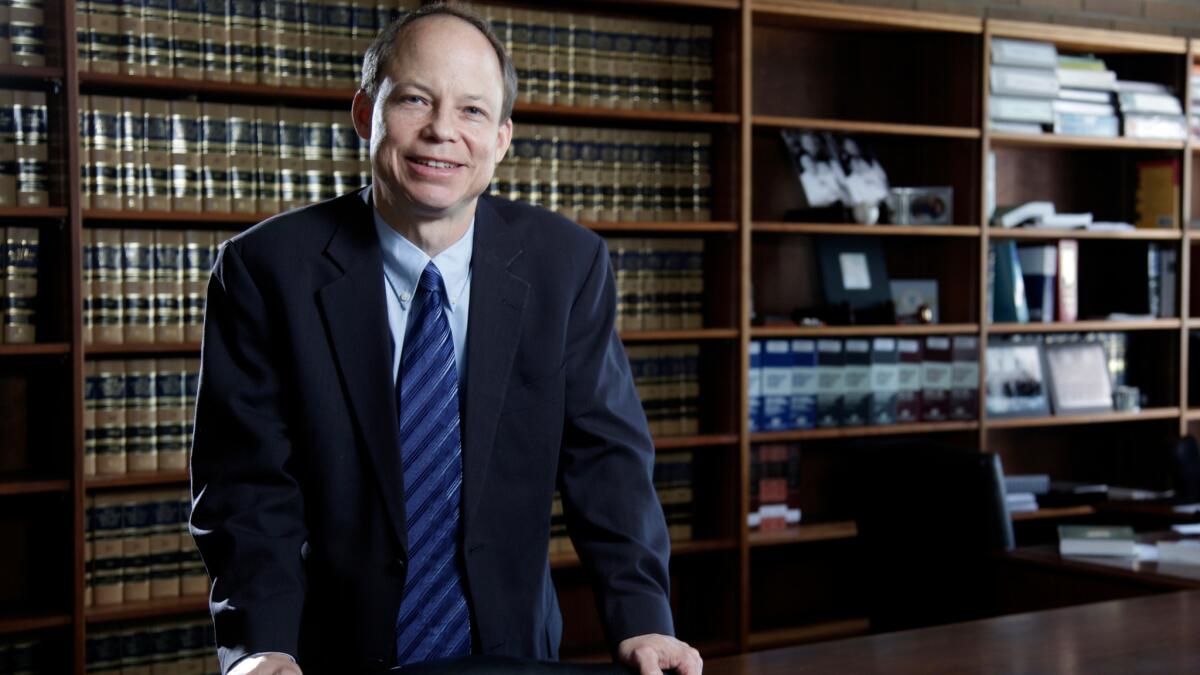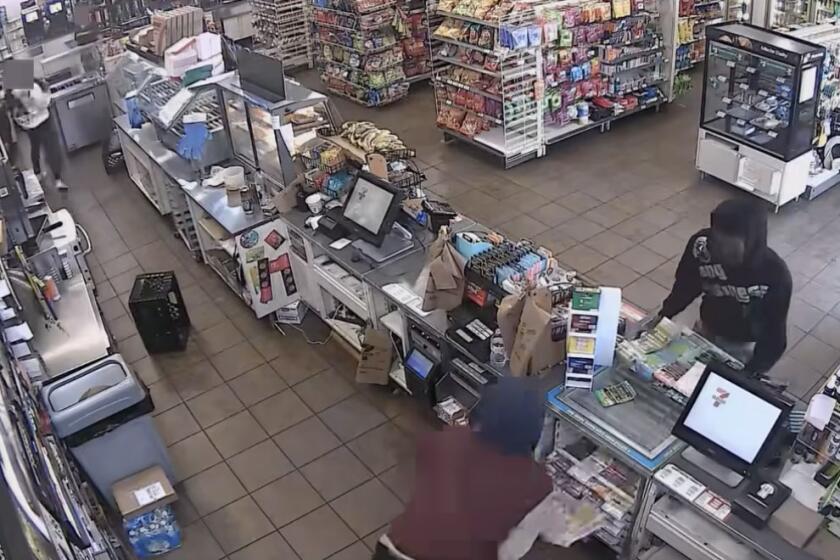If a judge sentences a convicted sexual predator to just six months in jail, does he really belong on the bench?

The case was no he said/she said scenario of ambiguity and confusion. It was clear from the accounts of the two graduate students who intervened that an unconscious woman was being violated by Brock Turner, a freshman member of Stanford’s swim team.
A jury agreed, finding Turner guilty of three felony counts: assault with intent to commit rape of an intoxicated or unconscious person, penetrating an intoxicated person with a foreign object and penetrating an unconscious person with a foreign object. The prosecutor wanted six years in prison. The state recommended minimum calls for two.
But Santa Clara County Superior Court Judge Aaron Persky, once a captain of Stanford’s lacrosse team, seemed sympathetic. To the rapist.
He gave Turner six months in county jail plus probation. Prison, the judge noted in court, would have “a severe impact” on the young man, who after all, thought he was having consensual sex.
“Enough is enough,” said Stanford law professor Michele Dauber, summing up the feelings of outrage spawned by the sentence. She has launched a recall effort against Persky, a former prosecutor.
When Persky first ran for judge in 2002, the San Jose Mercury News reported, his campaign biography boasted of his focus on “sexually violent predators, working to keep the most dangerous sex offenders in custody in mental hospitals.”
I’d love to know why his definition of a sexually violent predator does not include a 19-year-old man who raped an intoxicated, unresponsive 22-year-old woman.
::
Dauber has spent a decade trying to change how campuses handle sexual assault. Until now, it’s been like screaming into a void.
But denial no longer seemed like an option once Buzzfeed posted the victim’s moving statement to Turner, which began “You don’t know me, but you’ve been inside me and that’s why we’re here today.”
“This is the first thing that seems to have broken the sound barrier about this issue,” Dauber told me Wednesday.
For years, she said, as she and her colleagues have pushed schools to do a better job educating students about sexual violence and protecting those who are victimized, detractors have argued that sex assault statistics are overblown, that campuses have no business doing the job of police and district attorneys.
They argue that rape is a slippery slope. That consent is too delicate a thing to regulate. That alcohol fuels mutually bad decisions. That a woman who does not immediately file a police report, or submit to an invasive rape kit, must be lying or have ulterior motives, like assuaging day-after regret.
But here was a case so stark in its facts that a jury had no trouble convicting. The police were called, the hospital did a rape kit exam. The victim was unconscious for hours after the rape; not only did she have no ulterior motives, she didn’t even know what had happened.
And a judge could not bring himself to impose even the minimum sentence.
::
Despite a historic presidential primary this week, the Brock Turner rape case was Topic A everywhere I went.
Here on the Stanford campus, where finals have just ended, there is a unanimity of opinion rarely seen when a star athlete is accused of rape.
“No one has come to Turner’s defense,” said Victor Young Xu, Stanford Daily managing editor for news. “Everyone is outraged.”
“This was not a women-versus-men issue on campus,” said Kjerstin Gruys, a Stanford teaching fellow. “This was collectively understood as horrifying.”
Stephanie Pham is a sophomore who was so inspired by a three-week course Dauber taught on “The Law, Policies and Politics of Campus Sexual Assault” that she co-founded the Stanford Assn. of Students for Sexual Assault Prevention. At parents weekend in January, one year after the assault, she invited Dauber to speak. Parents, she said, were grateful and asked how they could help.
Join the conversation on Facebook »
I met up with Pham next to the fraternity that hosted the party the night of the rape. We sat at a picnic bench, near oaks and tall pine trees and the dumpsters where the rape occurred. It was hard to imagine something so ugly taking place in such a lovely setting.
Pham has started a petition demanding that Stanford do more to prevent sexual assault and improve the way it collects data. She is asking that Stanford publicly apologize to Turner’s victim, who was not a Stanford student, but was raped on campus at a university-sanctioned party. (Stanford spokeswoman Lisa Lapin said last week that the university confidentially reached out, and that the school has been a “national leader” on the issue of assault prevention and support, and bystander intervention training.)
“I’m sometimes surprised by how this case has fired people up,” Pham said. “I personally won’t be quiet any time soon.”
::
There is no denying the galvanizing force of the letter to the rapist, which had been viewed nearly 12 million times this week. Dauber, who is a friend of the young woman who was raped, and has a daughter the same age, has done more than anyone else to keep people worked up.
She has spoken out and tweeted relentlessly. She posted the letter that Turner’s father wrote the judge, a tour de force of denial that generated a fresh round of outrage.
She posted a plea from a Stanford teammate who implored the judge to “not make a scapegoat of such a hardworking and genuinely good person as Brock Turner.”
She called the probation report, which recommended no prison time, “a fetid pond of victim-blaming rapeyness.”
For the recall, Dauber is working in concert with the well-funded super PAC, Progressive Women Silicon Valley.
“It’s not just some professor running out into the street yelling ‘Recall!’” Dauber said. “We have seasoned political operatives, pollsters and fundraisers who have decided to make our stand right here, right now.”
She dismissed critics who say recalling a judge with whom you disagree is difficult, expensive and even wrongheaded, given that he is not accused of corruption or ethical breaches. Persky, the judge, has not spoken publicly about the case. (He earned a new six-year term Tuesday, but his name did not appear on the ballot because he ran unopposed.)
“This is Silicon Valley,” Dauber said. “Not only do we have a can-do spirit, we have plenty of money. If we have judges or other elected officials who don’t understand sexual violence, they need to move aside and we will have people who do.”
We depend on judges to put convicted rapists in prison. If it takes a recall to drive that point home, I’m all for it. Let the people decide.
robin.abcarian@latimes.com @AbcarianLAT
MORE ON STANFORD RAPE CASE
Swedish grad students who pinned down Stanford sex offender speak out
Former Stanford swimmer likely to serve only half of 6-month sentence for sexual assault
‘I made a mistake’: Two women apologize for letters supporting Stanford rapist Brock Turner
More to Read
Start your day right
Sign up for Essential California for news, features and recommendations from the L.A. Times and beyond in your inbox six days a week.
You may occasionally receive promotional content from the Los Angeles Times.







